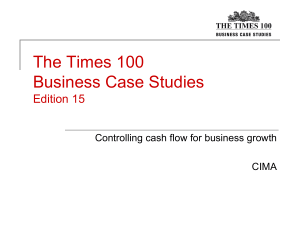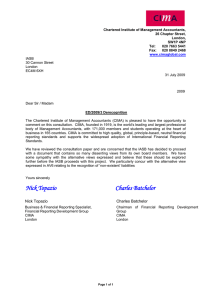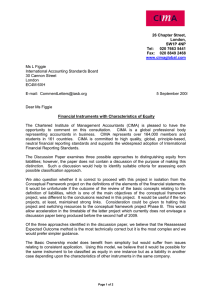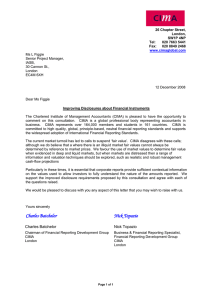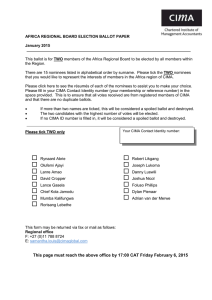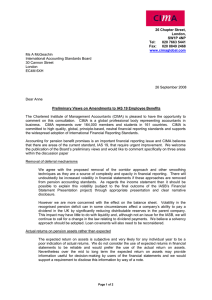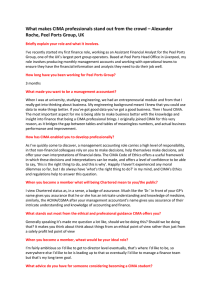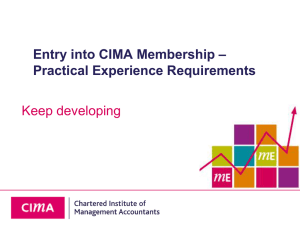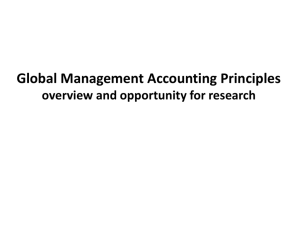presentation: improving strategic decision making
advertisement
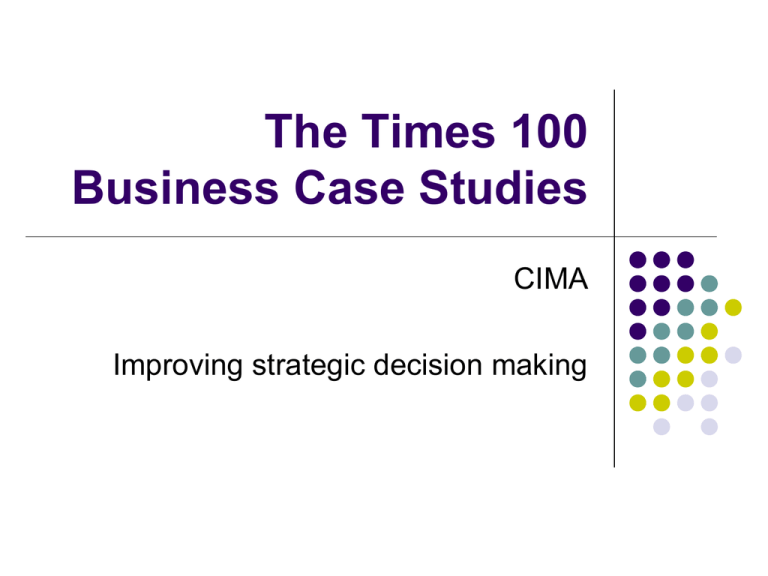
The Times 100 Business Case Studies CIMA Improving strategic decision making Introduction to CIMA The leading professional body for management accountancy Over 170,000 members/students operating in more than 160 countries CIMA qualified management accountants active across many sectors of industry Management accountants Have management as well as financial skills May take management or leadership roles in organisations Analyse and interpret financial and market data Assess effects on the business and propose solutions Contribute to overall business performance The decision making process Decision making follows a systematic approach Business decisions must relate to aims and objectives Strategies need to take account of external influences Social, political, economic or technological Levels of decision making Strategic Tactical Long term Generally taken at senior levels Shape the direction of the business Usually taken by middle management Help to implement the strategy Operational Related to the day-to-day running of the business Often routine, taken at all levels Decision making through analysing accounts Income statement Aggregated record of all sales and expenses over a given period Dynamic – describes the flow of money through the business Balance sheet A snapshot of the business at a point in time Balances assets (long term resources) against capital employed (long term finance) Key performance indicators KPIs are important in Monitoring progress towards targets Managing efficiency and effectiveness Key examples include: Financial, e.g. sales, revenue Customers, e.g. spending levels or total numbers Operational, e.g. productivity outputs People, e.g. levels of absenteeism Environmental, e.g. reducing energy consumption
